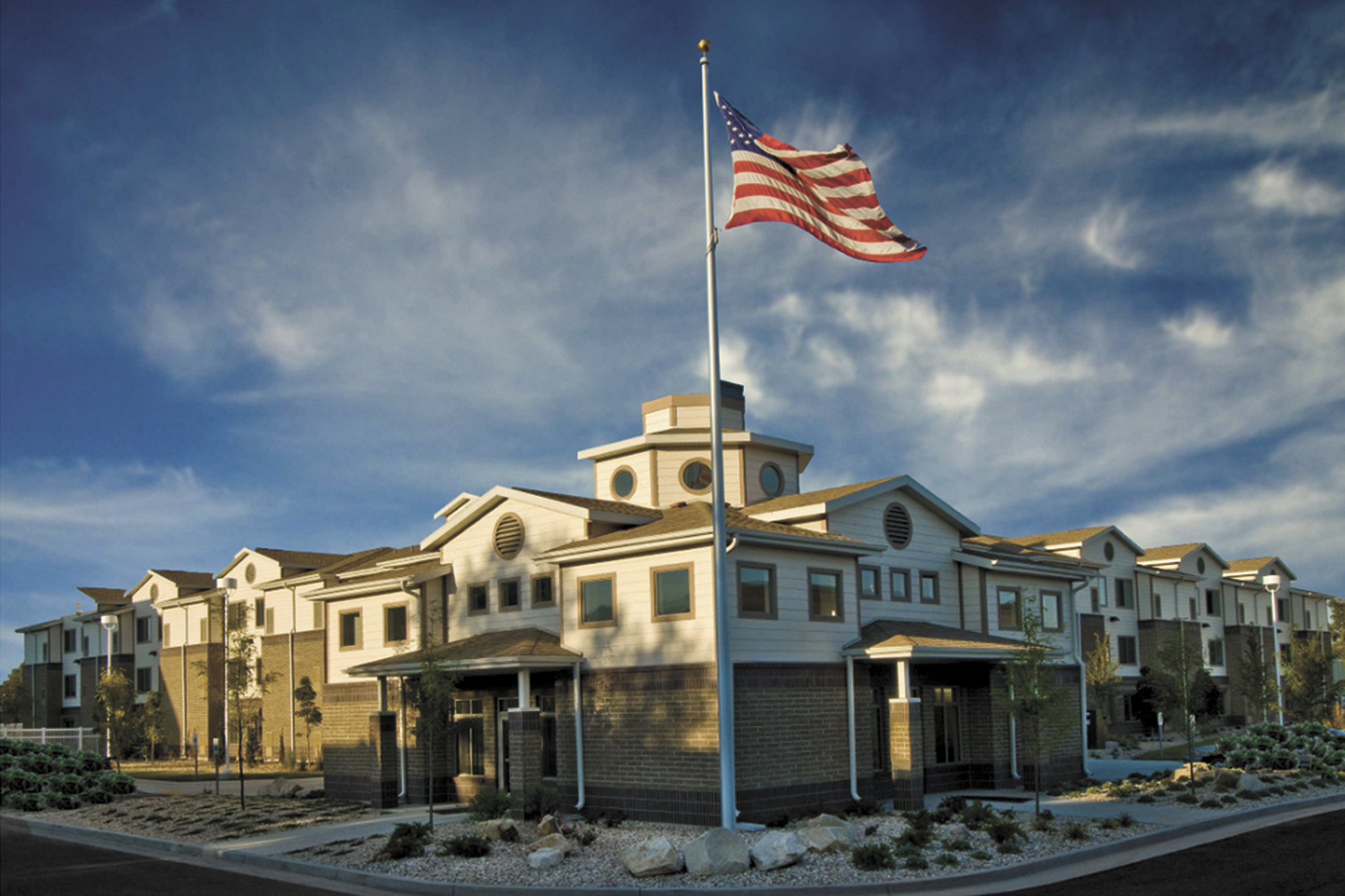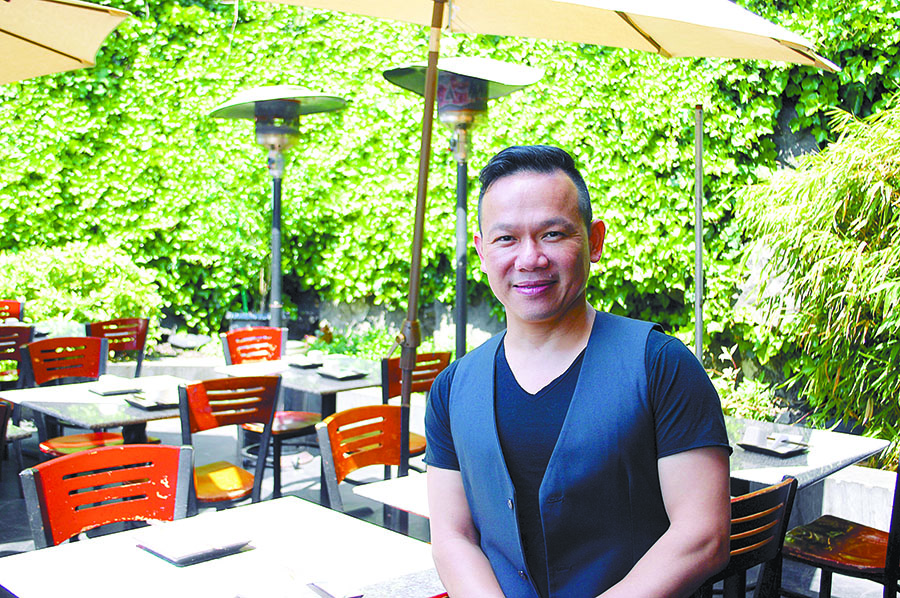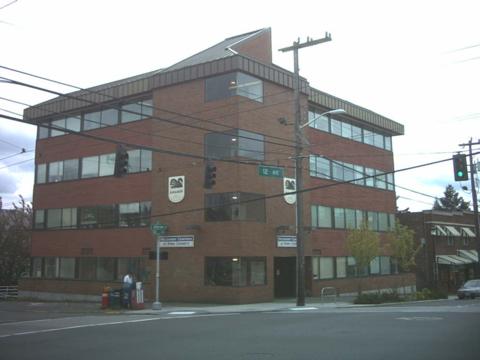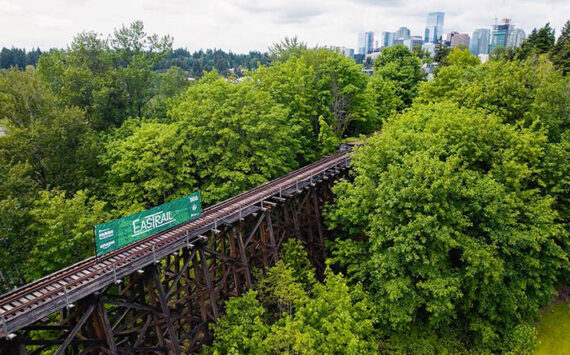On a cold gray afternoon, the first day of winter of 1989, we drove the final miles into Seattle from Los Angeles in a small blue Hyundai. The city was quiet and the traffic light as we passed Boeing Field, Rainier Brewery, and old red-brick houses perched atop Beacon Hill, where windows sparkled with Christmas color. The population then stood at 503,000. The Kingdome, that concrete monstrosity where Ken Griffey Jr. had just finished his first season with the Mariners, was clear in the distance. Fog curled around Smith Tower.
We dined at Cutters our first evening, gobbling down fish and chips, and noticed that yes, people here really do dip their fries in tartar sauce. We walked through a near-empty Pike Place Market, past blue garbage bins, rife with fish-scented trash, and a pony-tailed piano player tinkling a Scott Joplin tune in front of the Le Panier French bakery.
There was a scattering of homeless folks dug in for the night at Victor Steinbrueck Park, but nothing in terms of numbers like today. At Lowell’s, a few old salts sat on weathered bar stools, drinking Rainiers and shots of whiskey as they watched a football game on a small TV that had a “Norm Rice for Mayor” sticker plastered to its side.
After six years in L.A., Seattle seemed to us small and gritty, yet comfortable and manageable.
The venerable Los Angeles Herald-Examiner had closed down in November of that year, and I, like so many others coming from the paper, had offers in other cities. You see, in those days, big-city dailies were thick with news, and almost always hiring. Holiday papers were so fat with classifieds and want ads (remember want ads?) that paper boys joked they could kill a small cat if the unfortunate feline got in the way of a paper tossed onto someone’s porch.
To the amazement of my L.A. colleagues, I chose the Seattle Post-Intelligencer. Seattle was too distant, too rainy, they said, too unimportant, and way too mellow.
For me, it was the ferries that clinched the deal, watching them from The Edgewater Hotel on an early December night, after a day of interviewing for the P-I job, skittering like water spiders toward Bainbridge Island. Then there was the P-I globe, too, its blazing rotating letters casting dancing rays on the dark waters of Elliott Bay. I called home and told my wife, “This is the place. Let’s get out of L.A.”
“What was happening in the ’90s was not sustainable, psychologically. There were too many people getting too rich too fast.”
In 1989, Seattle was becoming trendy. It was shedding its company town cocoon, back when Boeing, the “lazy B,” engineered the prevailing blue-collar culture—bland and sometimes cheerless as the lye-cured cod one found at a Norwegian eatery in Ballard, well before that modest enclave was turned into high-density apartment buildings that all look alike.
There were coffee houses on every corner. Residents flocked to Frederick & Nelson dressed in Eddie Bauer fleece. The air was cleaner above snow-capped mountain ranges, and the grunge scene was in full bloom. Nirvana was two years old and Pearl Jam was about to form. Microsoft was on the verge of launching Windows 3.0. In a few years, Newsweek would put then-Slate magazine editor Michael Kinsley on its cover. Remember that one? He was clad in a yellow raincoat next to an open-mouthed salmon, with the headline: “Swimming to Seattle: Everybody else is moving there. Should You?”
Indeed, it was becoming quite hip to come to Seattle. But for us, it wasn’t some craving for hippness or to discover the new “in” city that we found most enticing. It was that Seattle felt, at least in comparison to sprawling L.A., normal, solid as the gray-painted Craftsmen on Queen Anne, and sensible as a flannel shirt. And besides, you could always find a parking place on Market Street in those days. The rise of a brash and cocksure socialist was years away.
And so we traded in La-La Land for Latte Land. Yes, please, I’ll have a double-tall hazelnut macchiato.
On our first Thanksgiving, we left our $700 a-month two-bedroom overlooking Interbay and headed to Colman Dock. On a ferry, we’d be off to a friend’s house on Bainbridge. We still had the California plates on. (Sorry!) And that, we’d discover, didn’t sit well among the natives. At the terminal, we accidentally cut someone off. Enraged, the guy jumped out of his Ford pickup, banged hard on the hood of the Hyundai, and bellowed, “Goddamnit, go back to California!”
We were startled, but not surprised by the anger, for we’d heard from other newcomers of this rage being vented at Outsiders (mainly Californians) who were coming to Seattle with a boat load of equity in their pockets, having cashed out when the housing tide was at full ebb. We can remember, trying in vain to buy our own home in 1990, and standing by, helpless (and equity-less), as people bid against each other. Sound familiar?
In the 1990s, almost a half-million new people poured into the Puget Sound, and Seattle was riding high – though, like now, not everyone was able to grab a seat in the saddle. Middle-class Seattle was being priced out. The economic boom was passing some people by and the resentment was palpable.
Mayor Paul Schell, who recently died, told the Los Angeles Times in 2002, “What was happening in the ‘90s, was not sustainable, psychologically. There were too many people getting too rich, too fast, and honestly believing they earned it. Our…daughter had a friend who started working as a secretary at Amazon, and she ended up being worth $4 million or $5 million. And she was explaining to her Dad, well, I worked really hard, Dad, for this money.”
The beat went on, and the tug-a-war continues between old Seattle and a new urbanized Seattle. The old maritime and industrial economy, replete with dark taverns, dive bars and famous greasy spoons like the former Dog House, yields to globalization, to a high-tech new order.
Our socialist city council member, Kshama Sawant. Photo by Anna Erickson
The hostility reserved for the Californians back in ’89 is in some ways now directed at what Kshama Sawant calls “the corporatists.” Her message resonates with the disenfranchised, those who feel the economic boom is passing them by. She has tapped into the anger and frustration that income disparity will continue. Socialism, as she often says, is the real path to democracy.
Last year, a cold late-November rain spilled down the blue poncho of Kshama Sawant. The dark-haired socialist, having only days before been elected to the City Council, stood before union workers assembled in support of Boeing machinists and declared, “The workers should take over the factories and shut down Boeing’s profit-making machine…We don’t need executives! We need Boeing to be under democratic public ownership by workers—by the community!” She’d later exclaim that Boeing was making war machines (she meant drones), and ought to devote its giant assembly plants to pumping out buses.
This kind of rhetoric was unimaginable when we arrived here a quarter-century ago. Politics revolved around compromise and consensus. Seattle has long been a progressive city with a strong labor tradition. In 1919, we were the first place in all the land to wage a general strike. For four days, 65,000 people walked off their jobs in support of shipyard workers, and though it didn’t lead to a raise in wages, it laid the groundwork for the city’s AFL and other unions to make powerful inroads. Years later, Franklin Roosevelt’s postmaster general James Farley would say that America consists of “47 states and the Soviet Republic of Washington.”
My first assignment at the P-I was to cover Norm Rice’s inauguration. I remember going to the Westin Hotel on New Year’s Day 1990 to meet the city’s first African-American mayor. He was so, well, nice, and that’s what everyone called him, Mayor Nice. You betcha! Politics was so different then. Moderate and conservative Democrats, for the most part, ran the city and the state. Booth Gardner was governor, smooth-edged and reliably mainstream. Republicans, like former U.S. Senator Slade Gorton, could actually win a statewide office.
During last November’s election, Sawant was relentless, never off-message, as she remains today, often displaying the political finesse of a wrecking ball. She came late to the socialist cause, only learning about Socialist Alternative at a local Ralph Nader campaign event in 2008.
As she told Seattle Weekly last year, “Growing up in India, the experience of seeing the deep contrast between extreme wealth in the hands of a tiny elite and massive poverty and misery on the other end, I think it was inevitable for me to ask the logical question of: ‘How can it be that we have so much poverty and misery when it’s clear that from a standpoint of wealth and technological innovation we are perfectly capable of eliminating it?’”
Formed in Europe in 1986, Socialist Alternative is now active in at least 20 major U.S. cities, including New York, Boston, Chicago and Seattle, places with a strong union presence and a growing number of working-class immigrants. The party gained traction during the World Trade Organization Protests in 1999 and played a major role in organizing the Occupy Wall Street movement.
There are two other socialist parties operated in Seattle, the loose-knit Puget Sound International Socialist Organization, whose leadership could not be reached for comment, and the Freedom Socialist Party (FSP).“We agree with Socialist Alternative that capitalism cannot be reformed, but where we differ is their belief that they can achieve their agenda by working with liberal groups and candidates,” says FSP’s Seattle branch organizer Su Docekal…“We endorsed her [Sawant] and actively worked for her, but ultimately we don’t think winning office is going to change society.”
An independent political organization, Socialist Alternative, which supported Ralph Nader’s presidential runs in 1996, 2000, 2004, and 2008, believes that capitalism, the two-party system and corporate America are the chief villains that perpetuate the burgeoning gap between rich and poor. Given that socialists occupy less than 1 percent of the more than 5,000 local elected offices in the U.S., and an even smaller number at the state and federal levels, it is difficult to know if the party’s message has legs.
It was the Occupy movement, which Sawant was a key organizer of here in 2011, camping with hundreds of other activists in Westlake Park in a demonstration called the Night of 500 Tents, that was pivotal in galvanizing support for the socialist cause.
Having never met Sawant during her campaign, I wondered for this story if she had really begun to create a mass political alternative, fueled by a growing angst with the city’s Democratic Party political establishment.
“Yes, I imagine there will be a challenge, but going with the Democrats is like falling off a cliff. We need to break from the Democrats.”
I meet up with Sawant last month at a conference room on the second floor of City Hall—not far from the city council office she moved into in January. She offers a warm greeting and a small smile that reveals teeth as white as seashells. Her council colleagues tell me before our meeting that Sawant’s persona in small-group situations is quite different from the one she displays in public, when armed with a microphone.
“She’s very personable and kind in person, almost reserved,” Councilman Burgess informs me. “But in public, she can be quite strident. She’s isolated herself and is really not a team player.”
“Then, it’s a lot of ranting and lecturing, like she’s reading from a handbook,” says David Meinert, owner of the Five Point Cafe, who served with Sawant on Mayor Ed Murrays’s 24-member minimum wage advisory panel.
Some find her fiery and often harsh rhetoric refreshing, myself included. It’s not every day you get someone, when announcing her candidacy, who likens Paul Allen’s Vulcan to “a shark devouring real estate.” Still, Sawant does rub people the wrong way, no doubt about it, and her detractors are wont to call her a show horse, a narcissist, a pain in the ass. I noticed a bit of a nasty streak as well. While she was behind in the initial election returns on Nov. 5, she announced triumphantly—though incumbent Richard Conlin was leading by nearly seven points — “Richard is finished…He may collect his salary for another two years, but he has no political future.”
Beneath the gleaming Amazon buildings that line Terry Avenue in South Lake Union, Democratic political consultant Christian Sinderman offers this assessment: “She’s provided urgency and a lot of noise, but what she and her loud, but small, following have done is not sustainable.” Sinderman signed on earlier this year as a key adviser to House Speaker Frank Chopp, who fears the specter of another socialist insurgency by the name of Jess Spear. A climate scientist who built a name for herself as director of the $15 Now campaign, Spear mustered a meager 19.86 percent of the primary vote earlier this month. A sign of socialist fatigue or buyer’s remorse?
On a hot, sultry evening in mid-July, I attend a meeting of the 43rd District Democrats gathered at the old University Heights Elementary School. There is no air conditioning and not a fan in sight, but these Democrats are no strangers to hot air emanating from long and heated debate. In they straggled, hard-core Seattle Democratic stalwarts, at least 75 of them, clad in shorts, jeans and flip-flops, filing past the small corner office that houses the Seattle Displacement Coalition, the adult painting class, and a classroom containing a smattering of ballroom dancers.
Sawant, the software-engineer-turned-part-time-community-college-economics-instructor-turned-high-flying-socialist is up on a stage. “It’s less than a penny per employee. I guarantee you, this is not going to be a job-killer,” she says, making her case that an employee head tax is a more equitable way of closing the budget shortfall at King County Metro Transit than a regressive sales tax.
She’s got a point, but I can see no one is listening. Maybe, like me, they’re more intrigued on this warm night by the political choreography, the confluence of big-name establishment center-left Democrats, urban progressives, and renegade lefties—all assembled for the district’s monthly meeting.
While Sawant continues to make her pitch for the head tax at the Democratic powwow in the University District, Chopp watches from the back of the room, shuffling papers and whispering orders to a couple of aides buzzing around him. As a University of Washington student, Chopp lived for a time in a geodesic dome and later built a name for himself as an ardent advocate for low-cost public housing. He’s Mister Mainstream Liberal now, media-adverse but an effective, seasoned power broker. This is his district, and he’s owned it at the ballot box for 20 years.
Not for a minute is the 61-year-old Chopp, arguably the second most powerful man in Olympia, taking lightly the challenge of Sawant’s protege Jess Spear, who also just happens to be here this sweaty summer night.
“Frank is very worried,” Councilman Burgess said, prior to the primary, of Spear’s threat. Recall that Sawant collected almost 30 percent of the vote against Chopp two years ago, and as Socialist Alternative spokesman Philip Locker—and Spear’s political director—says, “We have some unfinished business now, and that’s for Jess to knock off Chopp.”
Jess Spear, director of the $15 Now campaign and Sawant’s protege. Photo by Anna Erickson
Also in the room is Alison Holcomb, the well-coifed ACLU criminal justice director who led the charges to legalize recreational marijuana in Washington. She has her hand up, wanting to confront Sawant on the head tax. The councilwoman does not acknowledge her.
The following morning, Holcomb, a Capitol Hill resident like Sawant, confides that she’s seriously considering a run next year against the 42-year-old socialist. “You don’t effect change without a broad coalition,” Holcomb tells me over coffee, “and her rhetoric is all about, ‘you are a capitalist pig’ no matter what the size of your business is.”
As the 43rd District meeting winds down, I ask King County Democratic Party chair Karl de Jong whether he thought Sawant’s election has stolen thunder from Democrats and if perhaps the party is worried, even threatened that she has become a more effective messenger in articulating the widespread perception of corporate greed that gave wings to the passage of the $15 minimum wage.
“Look, what they [socialists] are saying is part of our platform,” he replies. “She wouldn’t be here if she didn’t need us.”
“She’s getting a little more push-back now,” says Burgess. “Her rhetoric is one thing, but the policy behind it is disastrous.”
He is particular incensed that Sawant voted against the confirmation of new police chief Kathleen O’Toole because she didn’t think O’Toole would “challenge the status quo” enough. For ten minutes, Sawant held court to justify her no vote, lecturing council colleagues that “while I don’t doubt her sincerity at all [about wanting Seattle Police to be efficient and accountable], that is troubling to me, since private businesses and corporations are not accountable to working people, they are accountable to the profits of the few.”
“That,” says Burgess, “is foolish governance.”
Or, as another council member, who asked not to be identified, tells me, “To stay viable, she needs to keep feeding her base red meat—and she’s quite good at that, but her act is starting to wear thin.”
Seated at the conference table at City Hall, Sawant is all business, as I fully expect her to be, reprising her repeated riff that the Democratic Party is “beholden to corporate interests.”
“There’s the Democratic establishment, and then there’s the rest of the people, the working people,” she begins in her brisk rat-a-tat Indian accent. “The people on the ground are well to the left of the business and corporate establishment. The majority of the elected body [on the city council] is part of the corporate establishment. We’ve been told that they [Democrats] are on our side, so why do they feel so threatened?
“We are exposing the Democratic Party for what they are, corporate-controlled. We do not have to accept the failed logic of a two-party system. The Democratic Party establishment has built an infamous resume for themselves, and it includes a regressive tax system, giving nine billion dollars in corporate tax breaks to Boeing, allowing the sky-rocketing cost of housing and making the cost of education out of the reach of working families.”
Sawant pauses for a breath-catching moment and says, “Feel free to interrupt me.”
And so I ask whether she anticipates being challenged next year.
“Yes, I imagine there will be a challenge, but going with the Democrats is like falling off a cliff. We need to break from the Democrats.”
Sawant may diss Democrats as corporate tools, but she won because of their wide support. Only a miniscule fraction of people who call themselves socialists were part of the 90,000-plus votes that sent her to City Hall. All the big unions lined up early behind incumbent Richard Conlin, nineteen of them, in fact, representing health care, hotel and restaurant workers, machinists, Teamsters and constructions trades. But, concedes King County Labor Council executive secretary David Freiboth, many of the rank and file members backed Sawant.
“I said at a victory rally for her that this is one of few times I was happy we were wrong,” Frieboth tells me over a bagel at Einstein’s. “Sawant is much more sophisticated than people thought she would be. She’s not a tool. She’s very bright and perceptive.”
As far as pursuing the $15 minimum wage, Frieboth explains, “The real genesis for it was that SEIU organized fast-food workers several years ago. But we had a symbiotic relationship with Socialist Alternative. We were able to apply the political pressure and expertise, and they were able to tap into the grassroots angst.
“They [Sawant and her Socialist Alternative followers] shouldn’t be getting the credit [for the wage increase] because we’ve been at this forever. But they were great organizers. We played the good cop and they played the bad cop. Heck, they made us look reasonable.”
Sawant gets testy when asked about her informal alliance with labor. In June, she hung up on KIRO radio talk-show host Dori Monson when he asked her whether she supported six-figure salaries for union leaders, noting that she was adamantly opposed to giving Seattle City Light CEO Jorge Carrasco a $120,000 raise on top of his $245,000 salary.
“There is a certain amount of hypocrisy with her,” says Monson. “I have no idea if she comes to this message of collectivism sincerely.”
Sawant and her fellow socialists won because the planets aligned themselves for her, according to David Rolf, president of the powerful Service Employee International Union 775. The Occupy movement, the fast-food worker strikes and how they organized themselves like never before, Sea-Tac’s passage of the $15 minimum wage. All the while, Sawant built a coalition of millennials, minorities, single women, immigrants, college-educated baristas and the like, all of them, to some extent, feeling politically marginalized and disconnected from the city’s economic boon.
“The fifteen-dollar wage had already become a thing and Sawant took advantage of that,” says Rolf.
For all the talk about Sawant’s impressive outsider grassroots campaign, Conlin, the fleece-vested Democrat, ran a lackluster campaign and underestimated her candidacy from the get-go. It didn’t help that he voted against the city’s sick-leave law. “She was the better politician. She had a message, he didn’t,” observes Councilman Nick Licata. “I tried to help him. I told him he needed to confront her, but he said he didn’t want to even mention her name, that that would give her more attention.”
In the end, Conlin was, as they say, doomed as a dog that chases cars.
“We may not be a center-left or even left-center city in the future…. [Sawant] is moving the agenda right now.”
Seattle seemed doomed as well at the beginning of this century. It started when Mayor Schell had to cancel the millennial celebration at the Space Needle because an Algerian national was nabbed at the ferry terminal toting enough explosives to blow the iconic structure to smithereens. There was the dot-com implosion, Boeing shedding nearly 20,000 workers in the Puget Sound, and high-tech stocks plummeting. For a time, we had the highest unemployment in the country.
And just when we thought we were over the tear gas and police beatings and poor old Paul getting smashed in the face with a bullhorn. The city that has long lurched from boom-to-bust, was back in bust mode.
Seattle, it seems to me, has always harbored suspicions about the new economy. We all think that growth and economic development is a good thing, that the influx of new money, high-paying jobs, fancy new restaurants and transformative new office and condo towers will strengthen our city. But then, there are a whole lot of people who aren’t getting cut in on the deal.
There are, for instance, an estimated 102,000 workers making less than $15 an hour in Seattle. We have the seventh highest cost of living in the nation. A one-bedroom apartment costs roughly $1,300 a month in the city. A minimum wage increase will provide but a temporary Band-Aid.
So while the city grows—and grows—the traffic worsens, the old established restaurants and bars go belly up as rents increase, the middle class heads to cheaper southerly suburbs—and the number of college-educated baristas and the like turn their frustrated eyes to people like Sawant.
The political dynamic has shifted. Demographic changes have altered the electoral landscape. The white working-class is getting younger, more liberal, and more open to progressive agendas. Some 20.4 percent of Seattle’s population is aged 20 to 29. We are the second biggest magnet for millennials in the country.
In Seattle, says Sandeep Kaushik, the main architect of Ed Murray’s mayoral campaign, there are two kinds of candidates these days. “There is what I call the communitarian populists who solve problems, who build consensus and are incremental in their approach. And then there are the populist progressives. They are filled with righteous indignation, unwilling to compromise and will fight the good fight.”
This latter group, believes Kaushik, is growing in number. “They are younger, more impatient and believe in confrontational politics,” adds Kaushik. “Even though both sides embrace the social welfare agenda, there is a battle going on between the two factions, the more radical political agenda versus older-style incrementalists—and that right now is the battle for Seattle’s soul.
I sometimes use a baseball analogy to explain Seattle’s present-day political environment. We got used to Triple AAA ball, but now we’re in The Show, a big-league city with big-time problems and a big-time agenda. As longtime journalist David Brewster (Seattle Weekly’s founder), wrote earlier this year—noting Mayor Ed Murray’s call to enact a $15 minimum wage, provide universal pre-K, and for Seattle to become a leader in urban policing and environmental protection—“So how did Seattle go from prudent incrementalism to being a contender to win the Super Bowl of Urban Progressivism? And is this, as they say, sustainable?”
That’s difficult to say, for Seattle has for decades seen its political pendulum swing. “After Charles Royer,” continued Brewster, “came a sober Norm Rice. After a vision-guy Paul Schell, we reverted to back-to-basics Greg Nickels.”
And now it’s Ed Murray’s turn in the box. He ran as a regionalist, a cautious, go-slow Olympia wheeler-dealer. His main campaign theme was that he was the Un-McGinn.
“Had Conlin won, [Murray would] never have jumped on the populist bandwagon the way he has,” says Spear. I think there’s something to that, and I heard this sentiment expressed by a number of prominent political observers I interviewed for this story.
Whatever the case, says the SEIU’s Rolf, “There’s no doubt that establishment Democrats have been destabilized by Sawant’s election.”
“We may not be center-left or even left-center city in the future,” notes Licata. “She [Sawant] is moving the agenda right now…If Conlin had won, it would have been a different scene.”
“We have elected an untested socialist,” grouses businessman Howard Wright, CEO of the Hospitality Group. “She is not being thoughtful. I just hope we are hearing from a very small and vocal minority because with her, it is a scorched-earth politics.”
Sometime during my first year at the P-I, one of the staff writers said he’d noticed that I was volunteering for too many assignments, that I looked too eager. “You know, you’re in Seattle now,” he said. “You got to learn to gear down.”
Maybe then, but not now. The small, gritty city we came to 25 years ago has disappeared. We’re cockier now, angrier, and certainly a lot brasher – like Kshama Sawant.
econklin@seattleweekly.com









